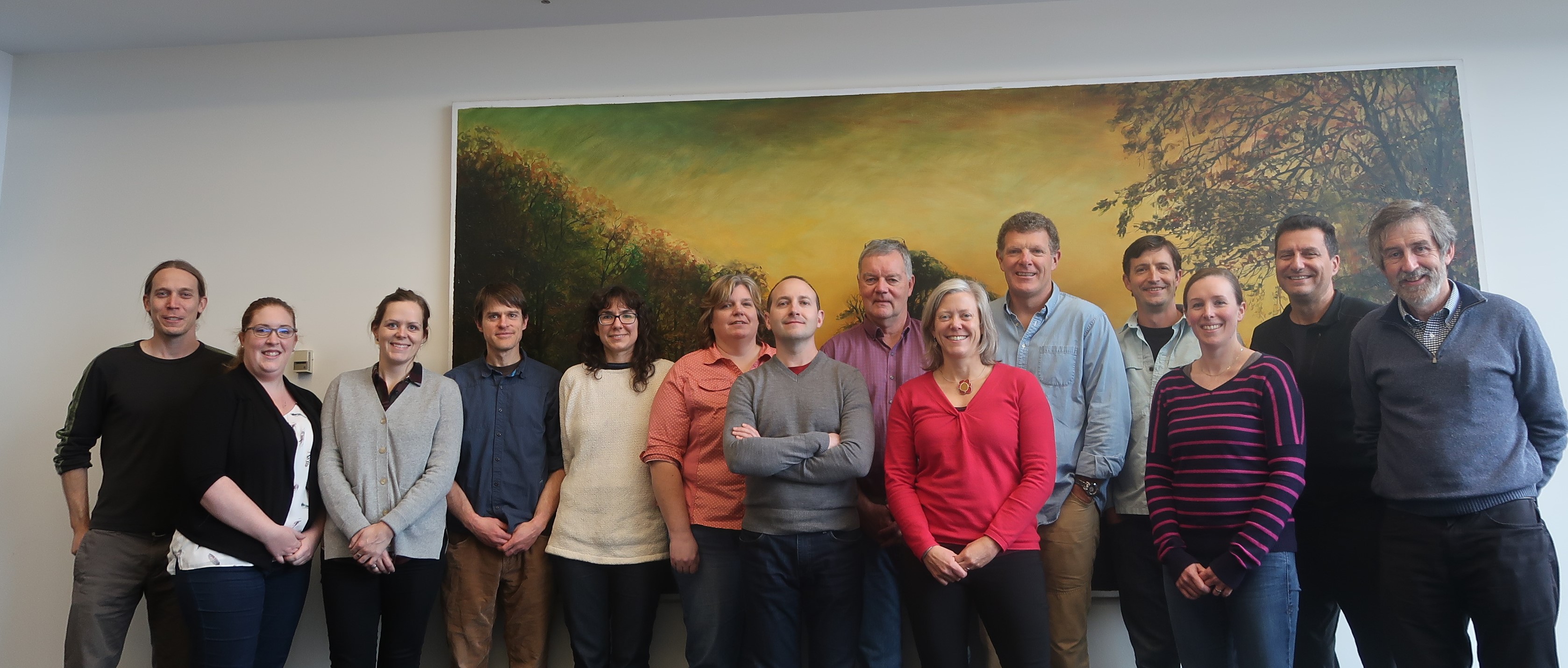Glacial retreat and salmon

November 2017 | Vancouver BC
Throughout much of the range of Pacific Salmon, glaciers are rapidly shrinking and thinning. For example, by 2100, 70% of glaciers are forecasted to be lost in British Columbia. What does this mean for salmon and what can we do with this knowledge?
A group of 14 scientists with expertise in glaciology, hydrology, climate change, watersheds, and salmon from Alaska, BC, Washington, Oregon, California, and the United Kingdom came together at Simon Fraser University in Vancouver, British Columbia, for a working group in November 2017 to discuss these questions. This was the first working group enabled by the Salmon-Net, supported by the Gordon and Betty Moore Foundation.
The working group discussed the many pathways by which glacial retreat may impact the amount and quality of available habitat for salmon. This loss of ice will expose new rivers and streams, potentially important new habitat for salmon. Glacial retreat also will alter river temperatures, sediment supply, and flow regimes, and thus could have both positive and negative impacts on the suitability of watersheds for salmon. Different life-histories and species of salmon will also likely be impacted differently as glaciers retreat.
This collaborative group is preparing several papers that will discuss these findings at a range-wide, specific watershed, and conceptual scales. These findings will be shared as they come to completion.
For more coverage of this working group, check out our website.
